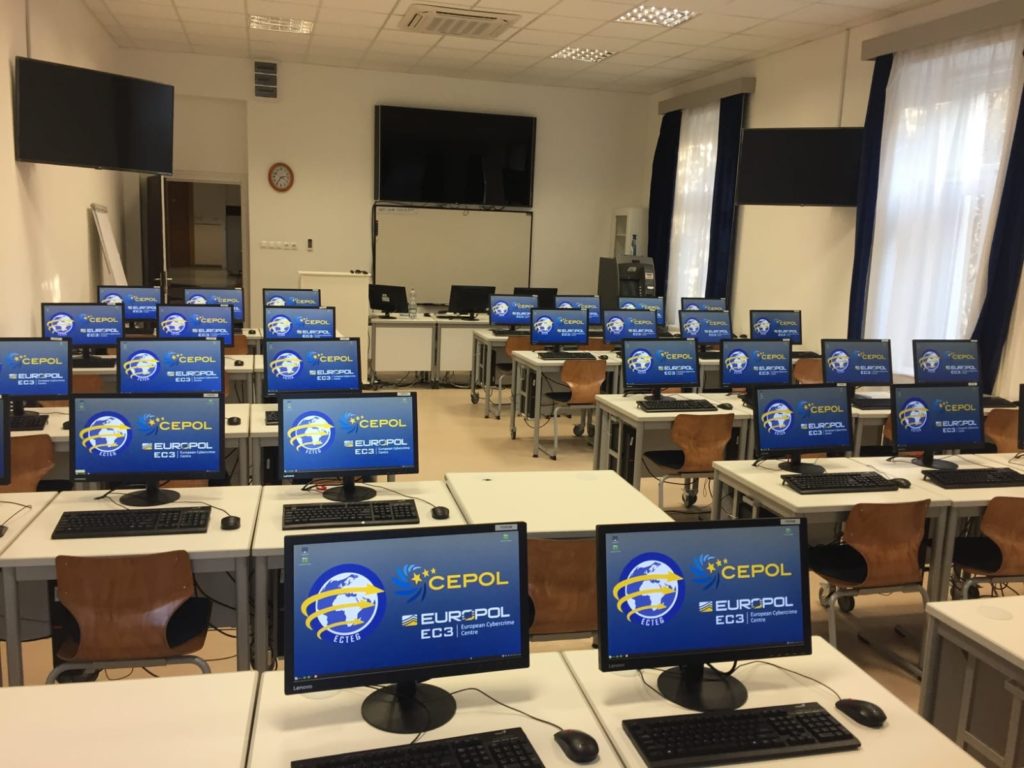The listed parameters aim to ensure the harmonisation and sustainability of the course material development efforts:
Background work
- Begin with analysing other existing training courses and feedback, including non-ECTEG materials.
- List skills and competencies addressed, describing links with Training Competency Framework (TCF) profiles whenever possible. A dedicated work package can include relevant micro-credits or certification process materials.
- Use of standards provided by Europol, CEPOL, Eurojust, ENISA and ENFSI and, whenever possible, ECTEG existing materials.
Course design and curriculum
- Specify technical requirements and students’ prerequisites.
- Specify course aims, learning outcomes and workload.
- Deliver trainer manual based on ECTEG template.
- If relevant, deliver a student manual with presentations, exercises, and their solutions, including a suggested roadmap of study.
- Include as many practicals and exercises as possible (whenever possible, the e-learning part is designed to present “theoretical” parts) and include virtual machines and tools used for exercises in the deliverables.
- Use open-source tools, or the FREETOOL project deliverables, and exclude exercises using commercial tools. Reference to commercial tools is acceptable if there is no open-source or FREETOOL alternative (not to be used as marketing for the tool).
- Build curriculum modules, as much as possible independently, to allow for selective deployment (considering delivery specificities and time constraints) and “agile” updates later.
- Create e-learning in a modular way, to allow reuse in other ECTEG projects.
- Employ the resources, services and software solutions provided by ECTEG to ensure simplified sharing, updating and reuse of materials.
- Avoid single-handed work: at least two contributors should develop sections/topics, to ensure a joint approach and concerted delivery.
Material delivery and IP rights
- Deliver skill assessment materials, including solutions and marking scheme.
- Deliver content in English, ensuring localisation is as smooth as possible. ECTEG staff supports a proofreading process if needed.
- Include the ECTEG logo, ecteg.eu link and “Funded by the European Union” on all materials and deliverables.
- Share Intellectual property (IP) rights with ECTEG and ECTEG members that contributed to the creation of the deliverables.
Piloting
- Deliver at least one pilot course (on-site, e-learning) – “Agile projects” can be an exception.
- Allow involvement of CEPOL, Europol and other ECTEG members in the organisation of pilots.
- Agree to invite LEA from EU MS to the pilot(s) and to provide ECTEG with the attendees’ names.
- Agree to provide ECTEG with the names of experts and trainers involved..
Reporting and usage/distribution
- Provide regular reporting to ECTEG General Assemblies and ECTEG Board during the development.
- Agree that all developed materials may be used in other ECTEG projects.
- Agree to host e-learning on the ECTEG web server and to be shadowed on the Europol and CEPOL web servers.
- Agree that the course materials will be available, free of charge, to applicants who meet the criteria outlined by ECTEG.
